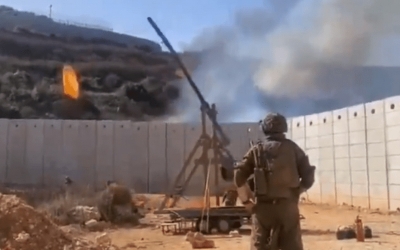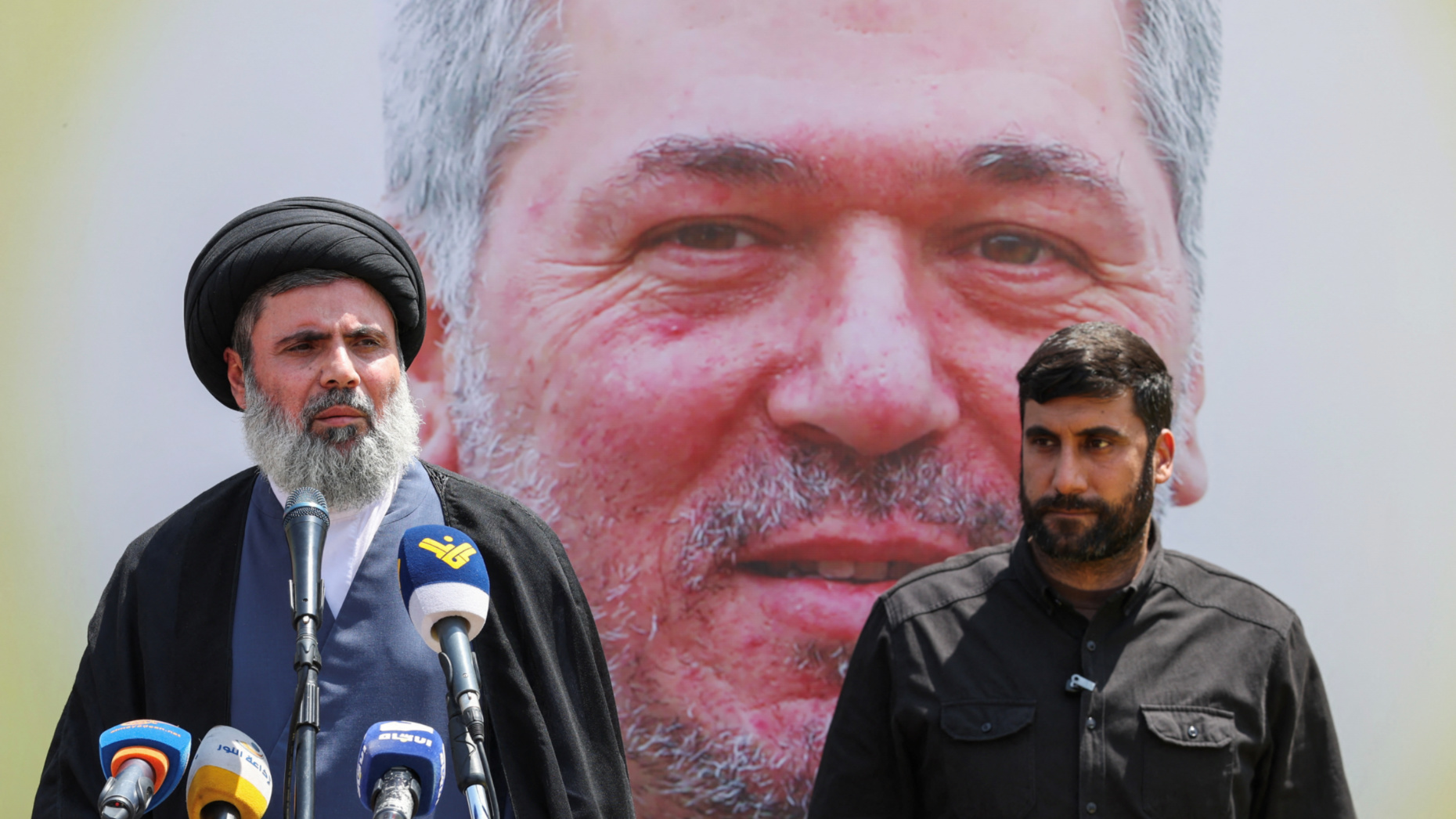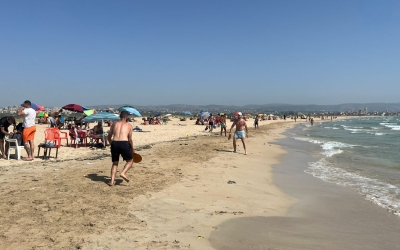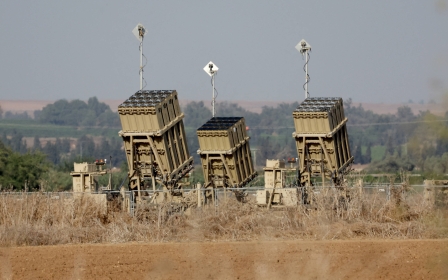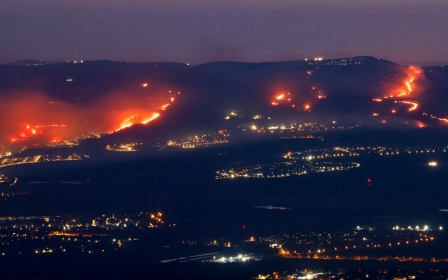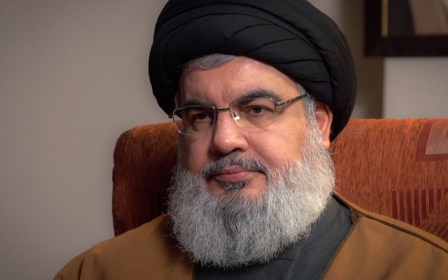Hezbollah changes tactics and reveals new strengths to force Gaza ceasefire
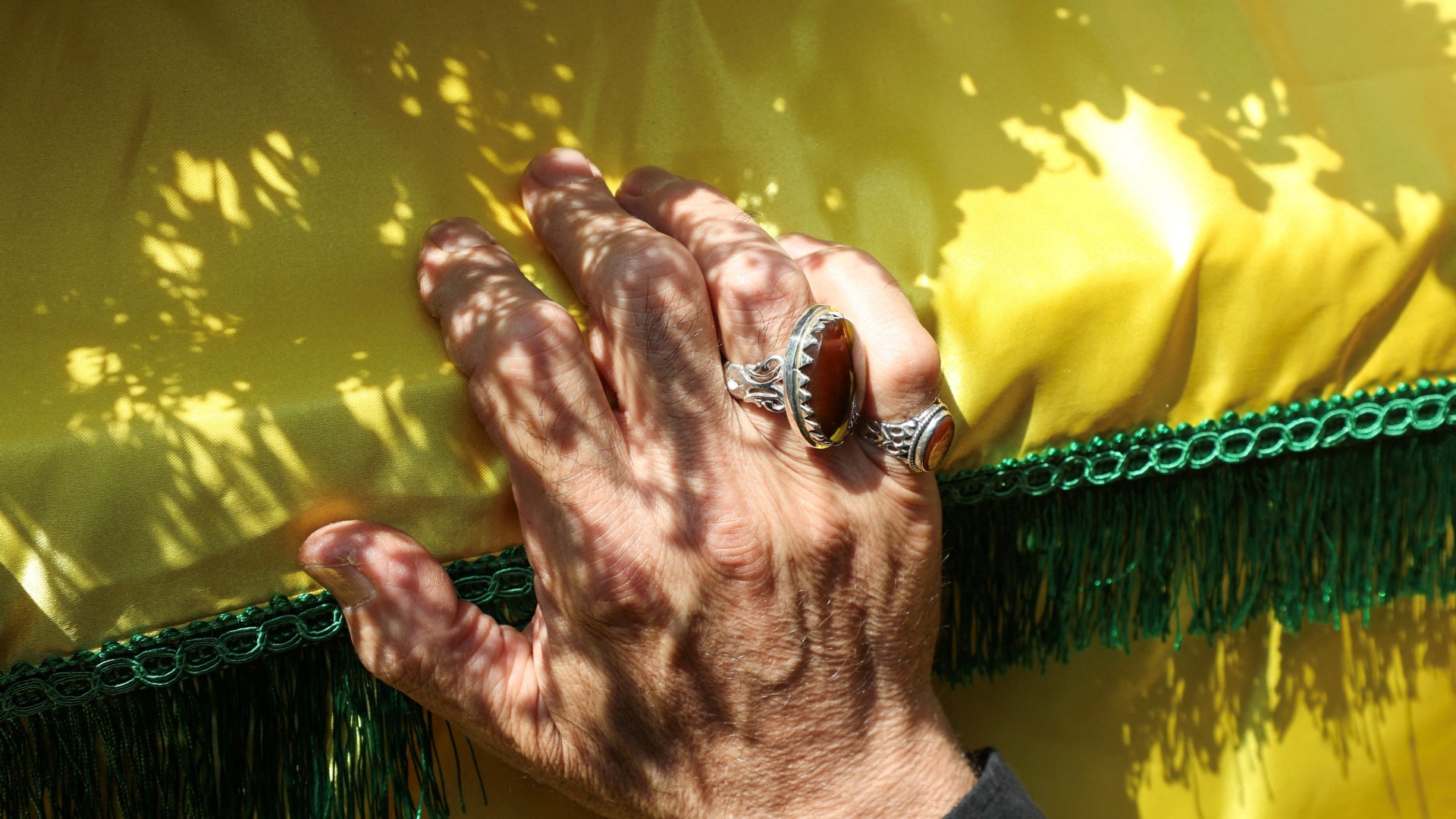
Israel's assassination of a top Hezbollah field commander on Tuesday has raised, once again, concerns over a wider Israeli war in Lebanon after months of clashes.
Hezbollah, the powerful Iran-backed Lebanese movement, fired over 200 missiles into Israel in retaliation and has vowed to intensify its attacks following the killing of Taleb Sami Abdallah.
These developments are just the latest in escalating hostilities, which have seen increasingly ferocious and sophisticated Hezbollah attacks on Israel.
The change in the scope of Hezbollah's attacks when compared to the early weeks of the conflict has caught many observers' eyes.
Following the 7 October Hamas-led attack on Israel and subsequent war on Gaza, Hezbollah began skirmishes along Lebanon's southern border in solidarity with the Palestinian enclave and to relieve pressure on Hamas.
New MEE newsletter: Jerusalem Dispatch
Sign up to get the latest insights and analysis on Israel-Palestine, alongside Turkey Unpacked and other MEE newsletters
Since then, the Lebanese movement has proven itself capable of downing several advanced Hermes 900 drones, firing anti-aircraft missiles against Israeli jets, which it claims forced them to retreat, and even carrying out a symbolic strike against an Iron Dome air defence unit.
"Hezbollah is becoming more audacious, and I think the Israelis are surprised by this," said Amal Saad, a Hezbollah expert and lecturer in politics at Cardiff University.
"They know what it has, its arsenal, but they didn't think it would have the audacity to use them, at least not for Gaza," she told Middle East Eye, suggesting that Israel expected the Lebanese movement to reserve such weapons for a direct war with Lebanon.
This escalation, experts say, is likely linked to the political deadlock over Gaza ceasefire negotiations.
On 31 May, US President Joe Biden presented what he called an Israeli ceasefire plan, which shares similarities with a proposal accepted by Hamas weeks ago. Israel, however, refuses to sign up to any proposal that definitively ends the war, something Hamas insists on.
While the West and Israel hope pressure on Hamas will prompt the Palestinian movement to concede to their demands, experts say Hezbollah is using its own tactics.
Mustafa Asaad, a weapons expert based in the US, told MEE: "The political situation and the deadlock we are having at the moment means the only way to be heard is to show that you have an advanced capability, without starting a global, final war."
Saad agrees, adding that the ongoing Gaza ceasefire negotiations may have encouraged Hezbollah to apply more pressure.
"Hezbollah has tied closing down this front to ending the war on Gaza," she said. "The idea is to pressure Israel to concede to the proposal."
Saad says Hezbollah is trying to raise the price Israel would have to pay should it not sign a deal with Hamas.
"That cost would be that the northern front would be on fire, and that Hezbollah would be much more brazen in its attacks, use more sophisticated weaponry and start showcasing more of its weapons, like the anti-aircraft weapons it started using last week and this week," she said.
Drone and missile attacks from Hezbollah have caused wide-ranging fires in northern Israel over the past weeks, infuriating top Israeli officials. Similarly, Israeli attacks on southern Lebanon have burned large swathes of land, with Israel even seen using a medieval trebuchet to launch incendiaries.
'Ready for any escalation'
Since Hezbollah and Israel fought a 40-day war in 2006, the foes have traded occasional blows in a manner intended to contain any potential escalation.
During the current round of hostilities, Israeli air strikes on Lebanon have killed over 450 people, including at least 80 civilians. Meanwhile, Israel says that 15 of its soldiers and 10 civilians have been killed.
The Lebanese movement has been staging more brazen drone attacks in recent weeks, while Israel has struck deeper into Lebanon and carried out several targeted assassiations.
Despite this being by far the largest escalation since 2006, it remains within Hezbollah and Israel's parametres and is yet to spark an all-out war.
According to Asaad, Hezbollah is "not really going all out yet" and the movement's actions remain "within escalation management".
Qassim Qassir, an analyst close to Hezbollah, told MEE the group has changed the kinds of attacks it launches "firstly, in solidarity with Gaza and to respond to Israeli aggressions".
While Hezbollah's attacks send a message of deterrence to Israel, Qassir said, they are also intended to tell the Israelis that "Hezbollah is ready for any escalation".
In the beginning of the Gaza war, Hezbollah's involvement in its "solidarity front" largely focused on Israeli surveillance, which was targeted by fighters positioned near the border.
The operations were costly for the Lebanese movement, as Israel was able to target groups of fighters, killing several of them in a single day. The losses appeared stinging for a faction whose forces had been battle hardened by fighting in Syria's war on behalf of President Bashar al-Assad.
Asaad sees this as an early mistake that the group then rectified.
"In the first few weeks, Hezbollah fought like they were fighting in Syria, and incurred severe losses because the doctrine they had in mind was all-out movements, which means using brigade-level actions," he said.
"The Israelis uncovered this easily and targeted all the teams successfully," Asaad added. "Hezbollah learned from its mistakes and shrunk their missions to two to three-man teams."
Saad, on the other hand, believes that Hezbollah, along with the wider alliance of Iran-backed countries and armed groups in the Middle East known as the Axis of Resistance, always had a kind of "contingency plan" for situations like the war on Gaza.
"I think Hezbollah deliberately started with the countering surveillance strategy in order to reach this point where it can launch attacks on different targets that go beyond surveillance, on military formations," she said.
Asaad says that while the disabling of Israeli surveillance technologies on the border made Hezbollah's ground movements easier, the group's employment of its recently revealed weaponry, along with its use of Lebanon's mountainous, forest-filled geography, is what allowed it to launch more precise and deeper attacks on Israel.
The group adapted "extremely well" to the conditions against Israel, he says.
Earlier in June, a Hezbollah drone attack on the northern Israeli town of Hurfeish killed an Israeli soldier and injured at least 10 others.
"[Hezbollah] knows that short-range attacks are a complete success," Asaad said. "It is technology coupled with topography."
'Capable of shooting back'
Recent reports in Israeli media claim that Israel is requesting US assistance in deterring Hezbollah from escalating the conflict on the northern border.
Additionally, Israeli weapons firm Elbit Systems's share price has dropped as Hezbollah has successful downed its drones over Lebanon.
Experts believe these developments have raised Israeli concerns over their opponent in the north, which is often regarded as the world's strongest non-state actor.
"The Israelis realised that, on the other side of the border, they have an entity that is capable of shooting back," Asaad said. "Just this fact on its own is an achievement, because usually they are not used to people challenging their supremacy or challenging the capability and technology on the other border."
Saad said that Hezbollah's wider scope of attacks, both in terms of quantity and quality, is probably what prompted Israel to assassinate Taleb Sami Abdallah.
With the group keen on keeping the pressure on Israel, as well as continuing its deterring attacks, escalations that remain within the informal rules of engagement may be the only way to go.
"They have to [intensify after the assassination], otherwise deterrence will just be a term that is not being applied," said Asaad.
Middle East Eye delivers independent and unrivalled coverage and analysis of the Middle East, North Africa and beyond. To learn more about republishing this content and the associated fees, please fill out this form. More about MEE can be found here.


